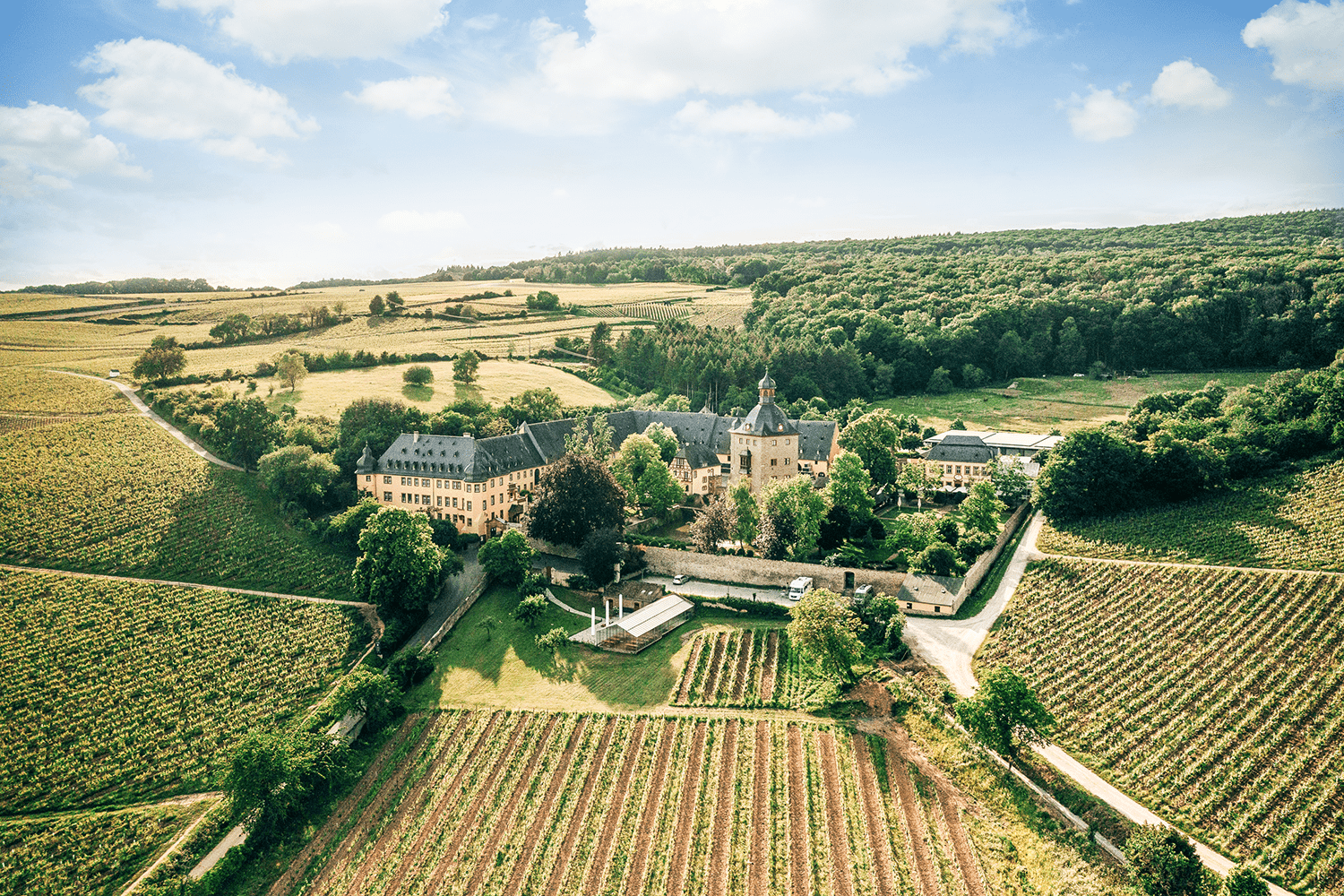A Savings Bank as a vineyard owner: this constellation, probably unique in Germany, has its own history – just like the vineyard in question. Nassauische Sparkasse (Naspa) in Wiesbaden and Schloss Vollrads in the Rheingau, some 20 kilometres away, came together in 1999 under what were actually unfortunate circumstances. The result is a success story that could not be stopped by Corona, or mildew, and allows the vineyard to look to the future with confidence.
As is often the case, the sun shines down on the historic group of buildings at Schloss Vollrads in the Rheingau, idyllically nestled among vineyards. The now largest organic vineyard in Hessen above Winkel is known for its top-quality Rieslings and is currently working on an equally bright future with the construction of a new winery. Yet the 800-year history of one of the oldest vineyards in the world almost ended in 1997. After many years of increasing economic difficulties, the imposing estate of the aristocratic Matuschka-Greiffenclau family was hopelessly in debt. It was in this situation that Naspa, as the house bank of many years, took over the estate itself in 1999 and committed itself to Schloss Vollrads as a cultural asset worthy of protection. The economic prerequisite for the future is a »black zero«. This means that the vineyard should be self-supporting and pay for the maintenance of the historic properties. In return, Naspa will waive any dividends due and thus invest in the estate on an ongoing basis.
Realignment of the vineyard
An advisory board made up of Naspa board members has set the broad economic framework. From the outset, however, the Savings Bank put the operational business in the hands of professionals: the first managing director was expert winemaker Dr. Rowald Hepp. He previously managed the »Staatlicher Hofkeller« in Würzburg, which advanced under his leadership to become a first-class address. In Vollrads, in addition to the vineyard, he was also responsible for the upkeep of the listed castle and the estate's own restaurant. The vintner, who holds a doctorate, also had the right touch at Schloss Vollrads. Until the scheduled handover of the management in December 2020, he completely reorganised the vineyard. The renovation of the castle grounds, the gradual expansion of the vineyards to today's 63 hectares, the establishment of an international distribution network for the wines and the conversion to organic wine, which began in 2019, were all under his direction. Sustainability is the guiding principle. Schloss Vollrads thus stands on four pillars: the vineyard as the supporting pillar plus events, gastronomy and the estate.
The successful work of Dr. Hepp has been continued since January 2021 by the new managing director Ralf Bengel, also a winemaker and oenologist. He was previously head oenologist at the Hessian State Wine Estates at Eberbach Monastery for over 15 years. Naspa entrusted him with two major projects: converting the vineyard to organic farming methods and building a new winery. He started this in 2018 in an orderly transition, initially working together with Dr. Hepp. Bengel was able to build on a wealth of experience for both tasks: He had already supervised a cellar construction for the State Wine Estates. And he had also already converted a vineyard to organic viticulture in the 1990s. In addition, he benefitted from Naspa's trust in his expertise, as Dr. Hepp also pointed out at his farewell: »I would like to thank Nassauische Sparkasse for their leap of faith and for allowing me such a high degree of personal responsibility and decision-making authority«.
Bengel has been able to continue his predecessor's achievements seamlessly: in 2022, Schloss Vollrads became the winner of the world's largest Riesling competition, »Riesling World Champion« so to speak, and won the »Riesling Collection of the Year« award with all its wines. In September of the same year, the conversion to organic viticulture was also successfully completed within the prescribed three years. With the 2022 vintage, Schloss Vollrads is officially Hesse's largest organic winery. The successful conversion in accordance with the Vollrads motto »quality, care and sustainability« created a spirit of optimism among the staff, which Bengel also wants to take advantage of for further innovations: »We want to align the production processes in a modern, efficient and quality-enhancing way, hence the construction of the new winery. We will continue to push ahead with digitalisation and make sales future-oriented. And we have developed a catering and event concept that will allow us to react more flexibly to changes such as those caused by the pandemic.« In 2020, out of 500 booked events, around 400 were cancelled because of Covid. But this did not stop the further development of the vineyard, just as it was not stopped in 2021 by a mildew infestation that threatened the existence of the organic viticulture and caused a loss of 10 percent of the grapes.
Schloss Vollrads is currently involved in the realisation of another milestone: the new winery. Thanks to the Naspa's dividend waiver, the vineyard is able to raise the construction costs of around ten million euros from its own funds. The two-storey new building of impressive dimensions, which was started in the summer of 2022, shows how serious Nassauische Sparkasse is about leading the vineyard into a bright future. 100 metres long and 25 metres wide, the architecturally understated building with its wooden façade blends harmoniously into the site. The integrated tank storage will later hold up to 900,000 litres of wine. When the winery opens as planned in mid-2024, Vollrads will be the vineyard with the most modern wine cellar in Hesse.
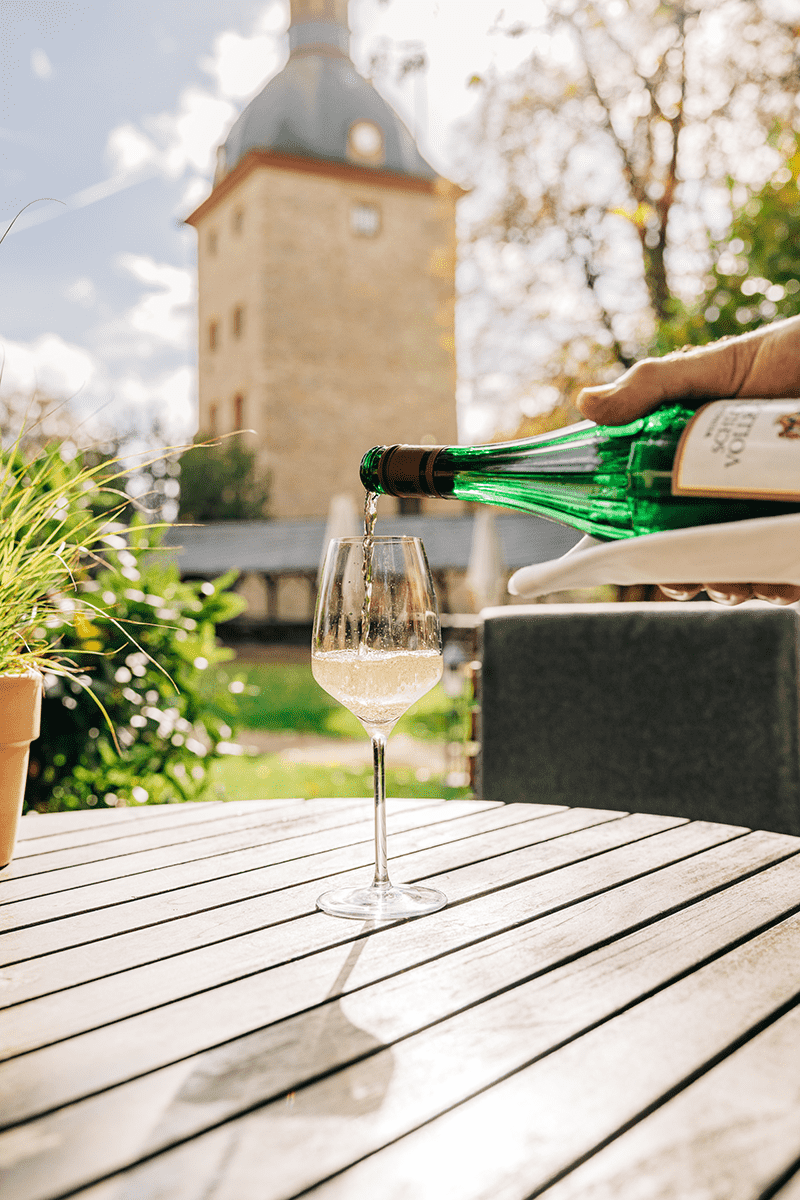
1097
First documented mention of the name Greiffenclau
1211
Oldest wine invoice in the world documents wine trade
»Competition in the wine market remains very tough. Quality counts here. And regionality with a local financial partner like Naspa at our side has proven to be a stabilising factor.«
Managing Director Schloss Vollrads
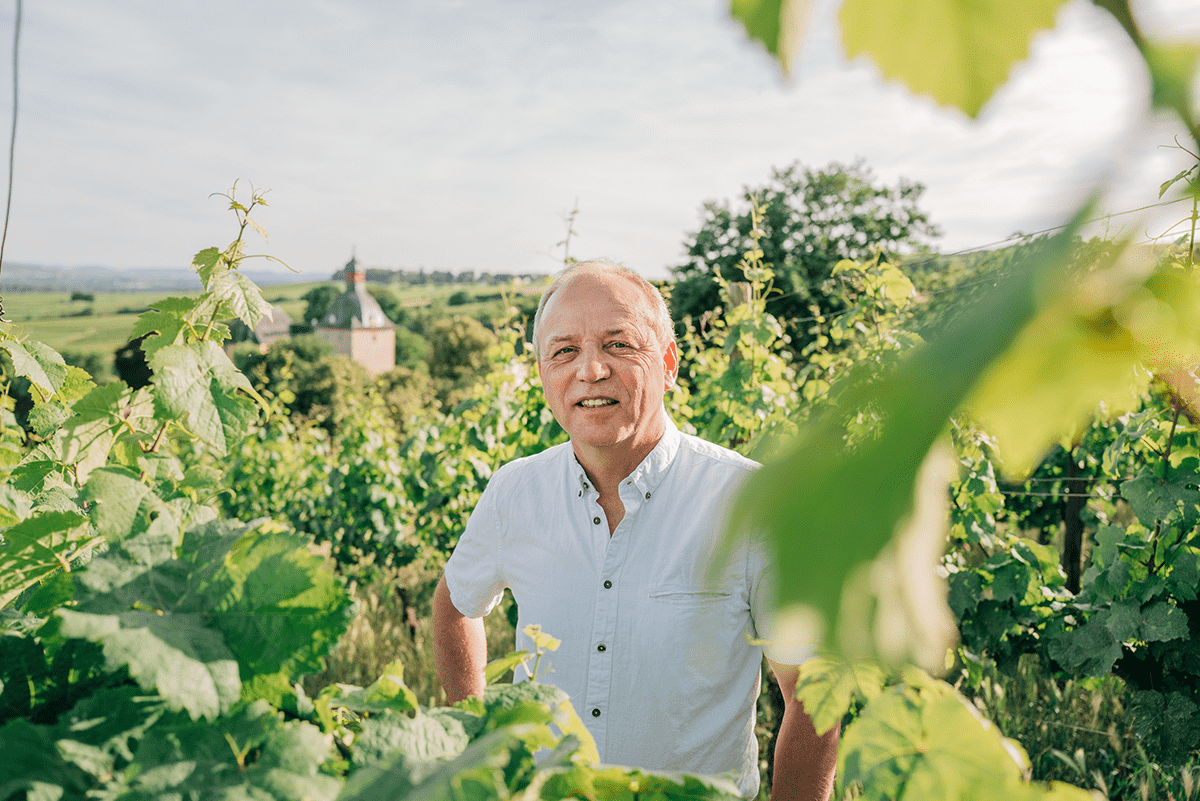
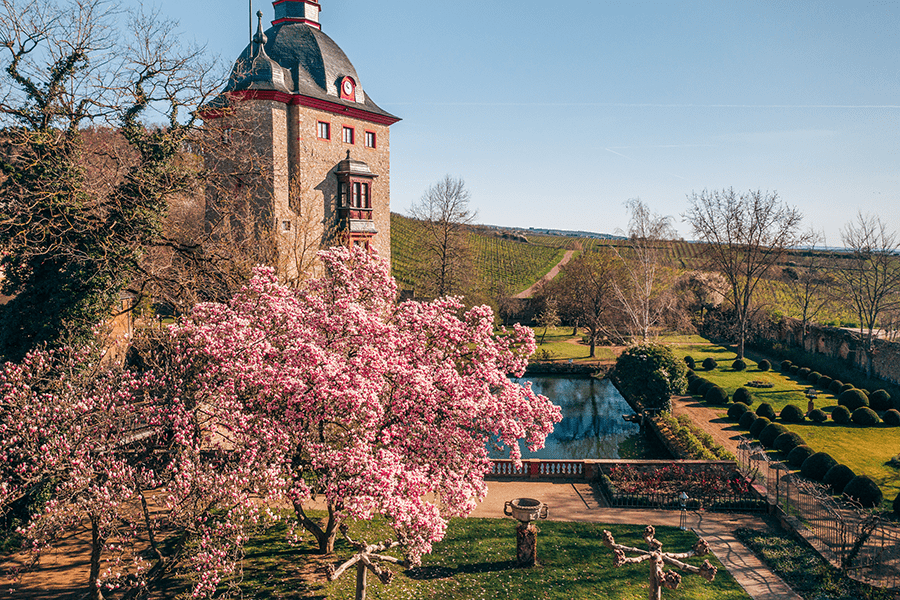
1330
Construction of the winery's landmark tower
1684
Completion of the manor house as the ancestral seat of the aristocratic Greiffenclau family, later Matuschka-Greiffenclau
»We want to continue on our successful, sustainable path.«
Chairman of the Board of Nassauische Sparkasse and Chairman of the Advisory Board of Schloss Vollrads Vineyard
Sustainable energy concept for the entire estate
The new building also includes a new energy concept that replaces the estate's three outdated oil heating systems: in the future, a solar system on the entire flat roof of the winery with an output of 210 kilowatts peak, an additional 136 kilowatt peak system on the roof of the machine hall, generously dimensioned storage tanks and a combined heat and power unit for the winter via a local heating network will ensure that Schloss Vollrads, with its winery and restaurants, will be around 80 % energy self-sufficient. The entire energy centre is located in the winery.
The new building thus forms the basis for the further development of wine quality and at the same time secures the economic future of the entire castle complex. In future, the grapes can be processed much more carefully, which ultimately has an effect on the quality of the wines. Bengel can therefore hardly wait for the winery to be finished: »It is something special to witness the construction of such a seminal building. And that's almost exactly 300 years after the completion of the estate buildings.« The winegrower is aware of his responsibility for the Rheingau's cultural heritage. With the winery, he wants to stabilise the quality of the estate wines at a high level and raise the bar even higher in the future: »Competition in the wine market remains very fierce. Quality is what really counts. And regionality with a local financial partner like Naspa at our side has proven to be a stabilising factor.«
Ultimately, Vollrads has also benefited from the ownership structure since 1999: experienced winemakers like Bengel are supported by experienced bankers. With a current annual turnover of around six million euros, the dividends remain within the company. This makes it possible to finance investments such as the winery from their own resources. One of these bankers is Marcus Nähser, Chairman of the Board of Naspa and Chairman of the Advisory Board of Weingut Schloss Vollrads, who is therefore optimistic about the future: »We want to continue on our successful, sustainable path and further strengthen the position of Schloss Vollrads as an attractive cultural asset and local recreational destination.«
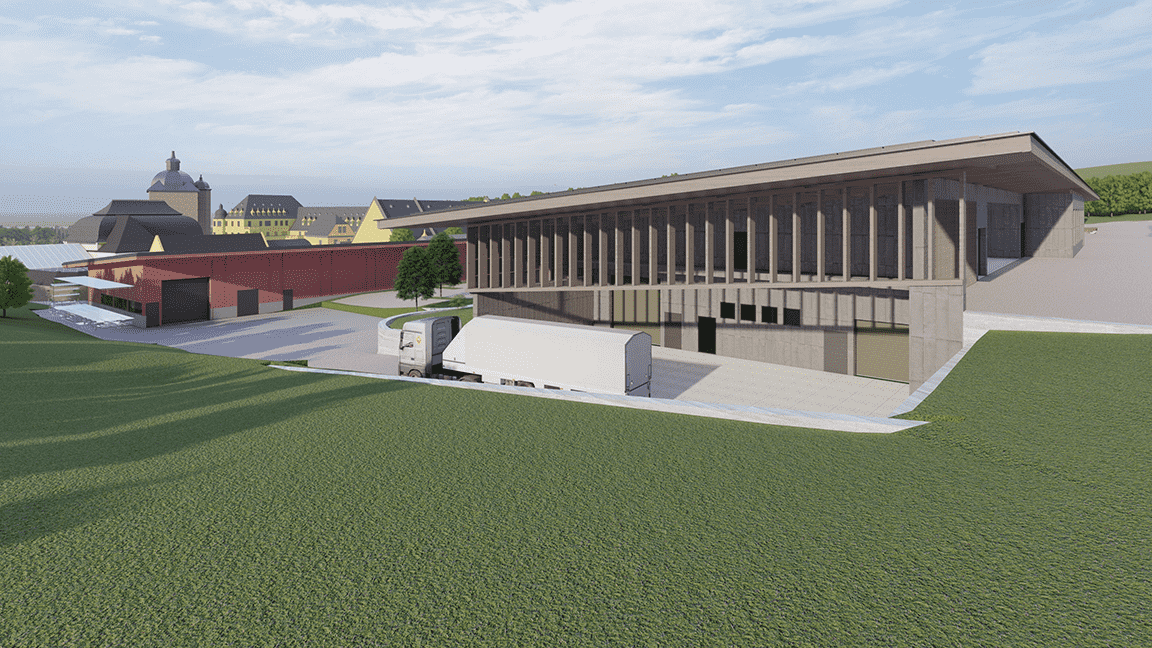
1716
Construction of the cabinet cellar as storage for the best wines – first wine classification
1897
Schloss Vollrads is a founding member of the VDP: Association of German Special Quality Wine Estates
1999
The castle and vineyard become the property of the Nassauische Sparkasse
2001
Schloss Vollrads is one of the 100 leading wineries in the world
2022
Largest organic winery in Hesse
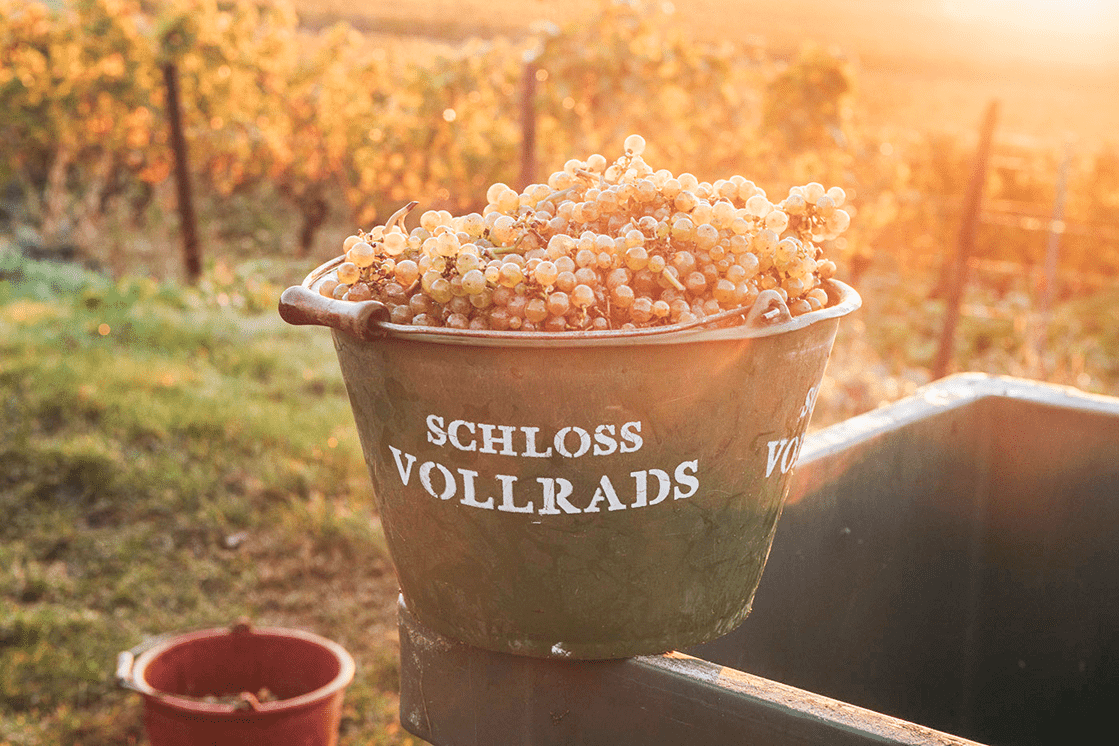
Short Profile of Nassauische Sparkasse
The business region of Nassauische Sparkasse (Naspa), from the financial metropolis of Frankfurt to the unique cultural region of the Rhine-Lahn and the Westerwald, is outstanding in its diversity and many facets. As one of the largest Savings Banks in Germany with total assets of EUR 15.4 billion, 71 branches and over 1,550 employees, Naspa is an anchor of stability for the economy and society. It is expressly committed to the principle of sustainability.
